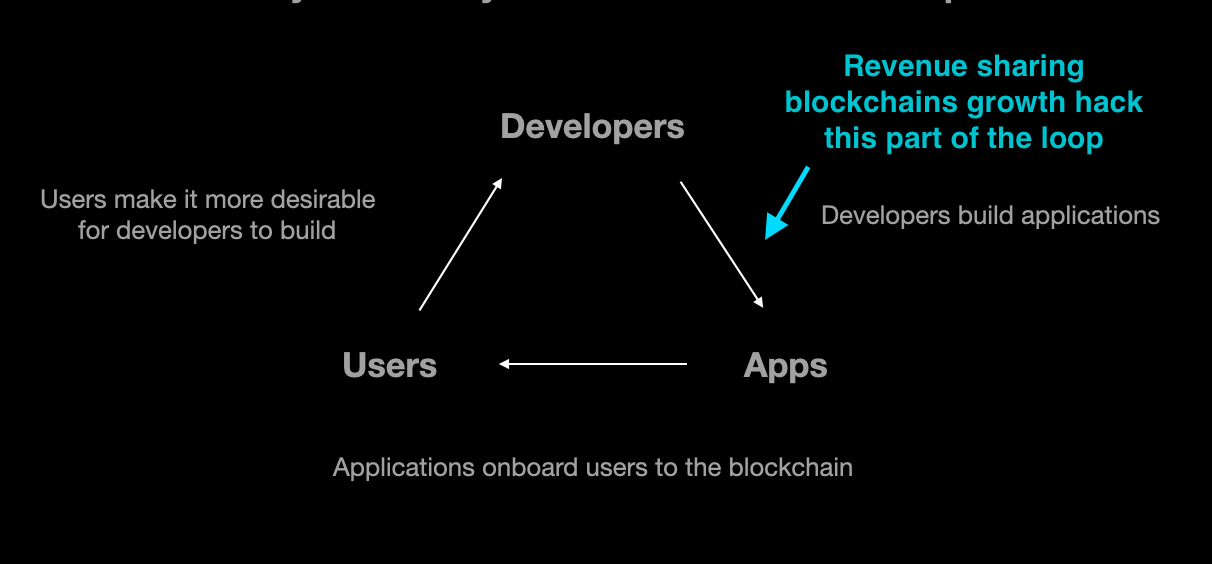Revenue Sharing Blockchains Growth Hack Funding Devs
Blockchains that share revenue with the projects that build on them are gaining traction and bringing in a new paradigm for blockchain growth
In my last post, I took a first principles approach to what it takes to grow a blockchain ecosystem. I mentioned that at each stage of the growth loop for a blockchain, you have a series of growth challenges, to bring devs, applications and users to the ecosystem which if done well creates a growth loop.
Over the last few months a new type of revenue-sharing blockchain design has emerged and in my opinion, this has created a paradigm shift in how blockchains solve the key growth problem of funding developers to build at the application layer.
How Revenue-Sharing Blockchain Design Works
Revenue Sharing or Fee Sharing is the idea that app developers get a cut of a blockchain’s gas fees based on how much usage the app gets. This is usually a % of the gas fees paid so the more the app is used the more fees will be generated.
This idea is fairly new, but has been thrown around the Ethereum community and documented by Archway a few months ago. However, it was only recently implemented recently by Fantom and Canto, which have both seen an immediate positive effect on their developer and on-chain growth (and token price ;-) ).
Revenue Sharing Hacks Developer Growth
Liquidity mining was the trick that hacked DeFi application growth and brought on DeFi summer (thank you Synthetix). It worked well because it was simple and effective, helping new applications overcome the cold start problem and enabling them to scale to $millions in TVL quickly.
I believe Revenue Sharing is going to have the same huge impact on funding developer growth that liquidity mining did on application layer growth. Why? Well, every blockchain needs to solve the problem of helping fund developers to build, and revenue sharing does exactly that in a quick and predictable way.
This is so huge because blockchains already fund ecosystem projects with billions to help them grow, but as someone who has applied for grants, it isn’t easy to get the funds needed to build. Getting grants and investments from a blockchain is slow and unpredictable - you need to go through governance, write long applications and so on. The system is inefficient and broken.
Revenue-sharing blockchains solve this developer funding problem in a simple and predictable way. This is so powerful as it speeds up the blockchain ecosystem growth loop.
Revenue-sharing blockchains will become the new meta and for good reason too.
P.S. I wrote this in 30 mins so hope it makes sense and please feel free to drop comments.



Gm Gm, Really loving this piece and the work you do here. I also run a web3 news substack for underrepresented creators called Facesofweb3. Would you be open to a recommendation exchange? Our subscribers need to be able to find each other!
Great job, once again!